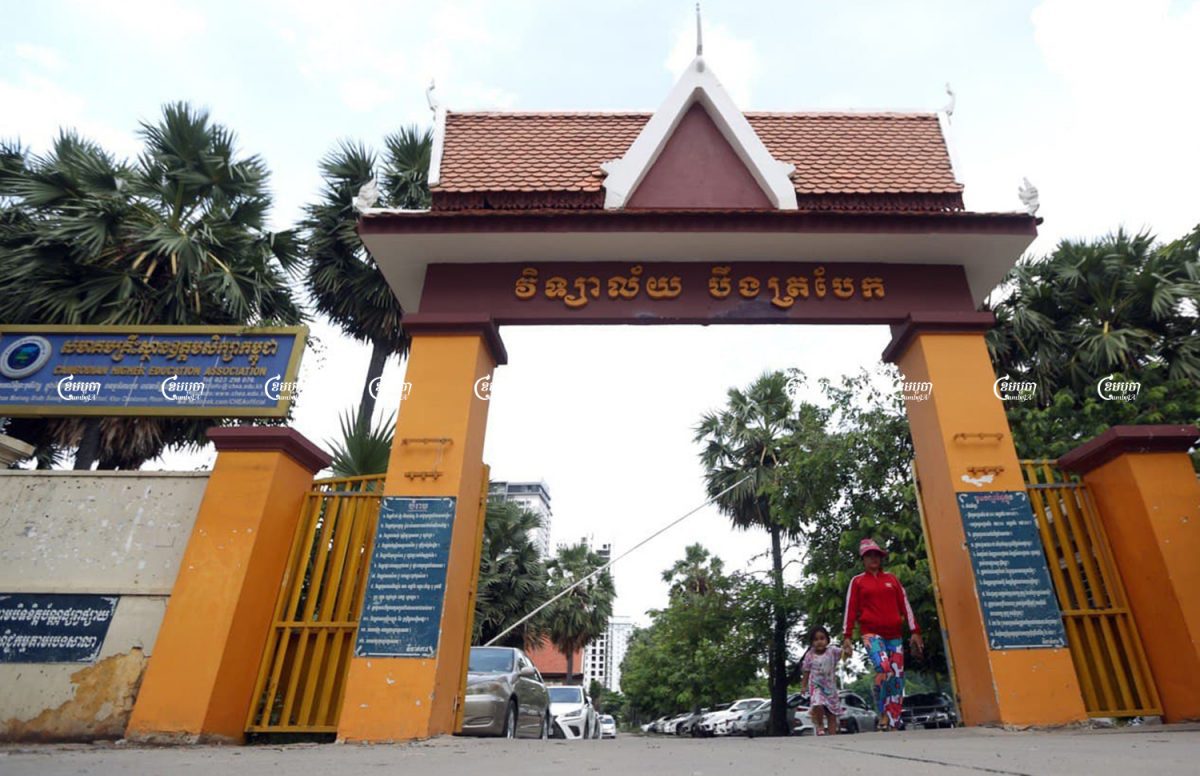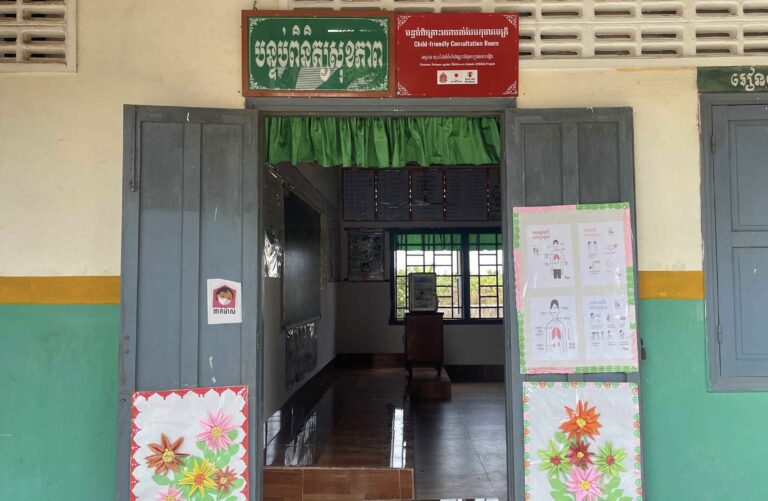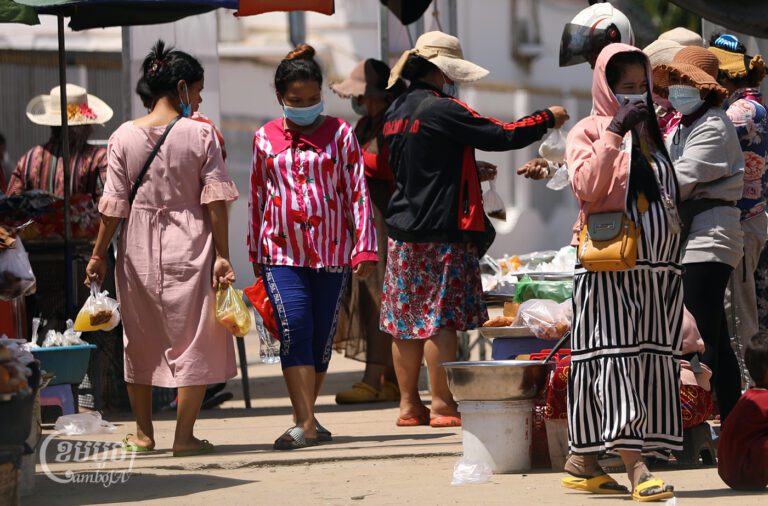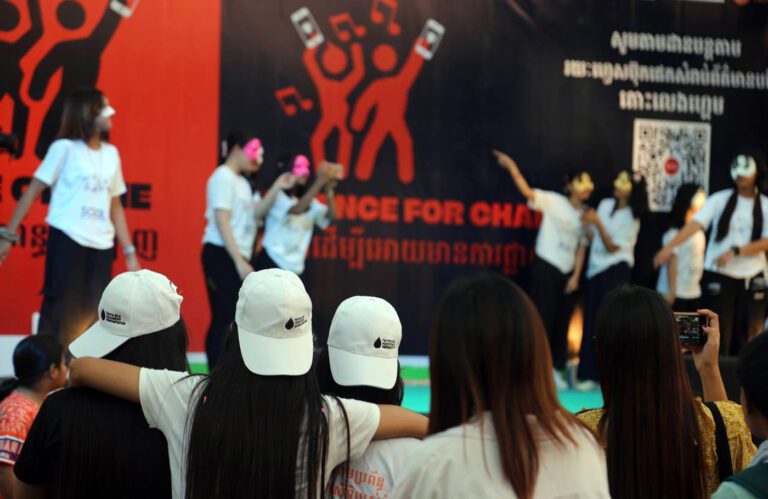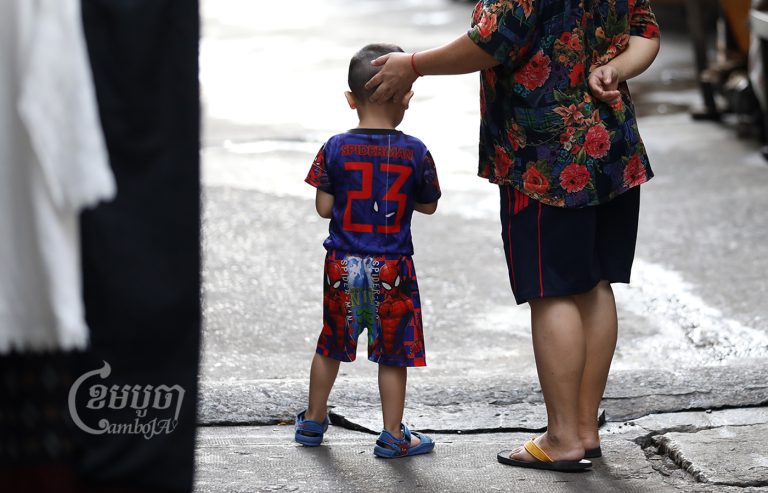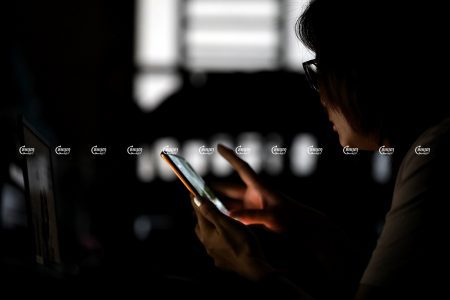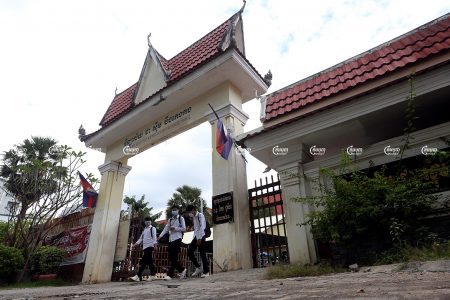Prime Minister Hun Sen has called for a partial reopening of schools, especially in rural areas where there are no COVID-19 cases, fearing that continued closures would lead to higher rates of illiteracy and students dropping out of school.
In an audio message released Tuesday, Hun Sen suggested Education Minister Hang Chuon Naron needs to have discussions with cities and provincial authorities to determine the reopening of schools in areas deemed to be non-infectious.
“I suggest that all measures be taken to enable students back to study by reopening schools and this is to prevent rural children from becoming victims of COVID-19,” he said. “Once children and adults are fully vaccinated, it will be possible to reopen all schools.”
However, Hun Sen said in urban areas with greater contagion, it will be necessary to continue online and distance learning, in part because internet access is more affordable. That isn’t always the case in rural locations.
“We are in a difficult situation and if we continue to close without separating the infected and non-infected places, it will cause more students to drop out of school,” he said. “Although we created an online education platform, rural and poor children do not have access to the internet.”
Hun Sen said more than 12.6 million people are eligible for vaccination, of whom more than 2 million are children of ages 12-17. More than 1.5 million children have been vaccinated so far in Cambodia.
The prime minister said the number of COVID-19 cases in Phnom Penh has dropped, while the death rate has also dropped. Both are positive points for the reopening of socio-economic institutions, including those in education.
The Education Ministry on Tuesday issued instructions to begin looking into partial openings for public and private institutions, ordering authorities to classify high-risk, low-risk and non-COVID-19 areas in order to start reopening schools safely.
The ministry called for the creation of school management committees with participation from parents and local authorities to decide to open or close schools. In schools that do reopen, the ministry said any groups of students must number less than 15 pupils.
However, the ministry’s instructions did not specify when a reopening might happen, nor which areas would be targeted.
An Education Ministry spokesman declined to comment, referring to the ministry’s announcement.
Cambodia first closed public and private educational institutions in March 2020 at the onset of the pandemic, reopened in November of that year, and then closed for a second time after the so-called February 20 event, the name given to the start of the ongoing COVID-19 outbreak. Besides schools, a large number of businesses and services have also been suspended throughout the novel coronavirus crisis.
According to a March 2021 joint assessment by the education ministry and UNICEF, more than 13,480 schools across the country have been closed, affecting 3.2 million students.
As students were pushed out of classrooms, the government has attempted to improve online pedagogy. This has included the ongoing publication of grade-specific videos on the national broadcaster TVK, as well as on YouTube and the Education Ministry’s Facebook page. But the effectiveness of these videos has been under question given the lack of smartphones and affordable data in rural areas of the country.
Nget Srey Lin, a mother of a seven-year-old girl in the Samrong district of Takeo Province, said that since her daughter’s school closed, her teachers provided students with distance learning papers twice per week and asked them to watch YouTube. The results of this strategy have not been good.
“Now she cannot even spell, and I have no time to teach her at home because I am busy with work,” she said of her daughter. “I think it would be good if the ministry reopens schools because [my village] is not at risk of COVID-19 infection like in the city, so my children will go to school and get the same education as before.”
Nhip Sokha, deputy principal of Prey Ann Primary School in Khvav commune, said that online teaching is difficult in rural areas because the internet is poor.
“Another issue is that some parents in rural areas do not have smartphones or other devices for their children to study online, and the parents go to work and just come back in the evening,” she said.
Mengly Quach, who is chairman and CEO of Mengly J. Quach Education, which oversees the private education Aii Language Centers and the American Intercon Schools (AIS), said it is good to reopen schools in rural areas where students cannot access online learning.
“The in-person learning is better than online because students need to communicate with each other and they generally want to meet each other in class,” he said.
He said online learning is not implemented across the country as people’s living standard is still poor and about 70 percent of students cannot learn fully and properly.
“Mostly they are not able to buy wi-fi-connected devices so they cannot learn online. They learn through distance learning, and it offers less results,” he said.
On Tuesday, the Ministry of Health reported 439 new cases of COVID-19 including 123 imported cases, bringing the total count to 93,055 including 15,152 imported cases since the pandemic began in early 2020. The large majority of these cases have been recorded since February 20, when the ongoing community outbreak began in Cambodia. The ministry has also recorded 88,786 recovered cases and 1,903 deaths from the virus.


